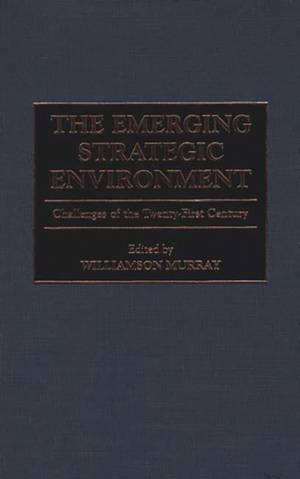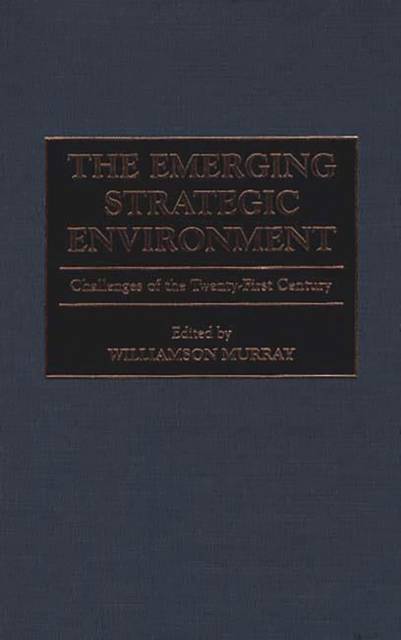
- Afhalen na 1 uur in een winkel met voorraad
- Gratis thuislevering in België vanaf € 30
- Ruim aanbod met 7 miljoen producten
- Afhalen na 1 uur in een winkel met voorraad
- Gratis thuislevering in België vanaf € 30
- Ruim aanbod met 7 miljoen producten
The Emerging Strategic Environment
Challenges of the Twenty-First Century
Williamson MurrayOmschrijving
These essays examine several aspects of the nature of the emerging strategic environment and how this situation affects thinking about U.S. strategy in the 21st century. The United States and its Allies currently confront a number of major trouble spots around the world. In addition, the stability and defense policies of U.S. Allies represent an increasingly important factor in the making of U.S. foreign policy. How well the American military is adjusting to the post-Cold War world with the threats of declining defense budgets and rapid changes in technology, will be a determining factor in the course of the coming decade. Here, the discussion of an impending joint military culture and service cultures out of touch with the harsh realities of the emerging strategic environment combine in a dramatic prediction of 21st century foreign strategies.
The Balkans, the Middle East, and Russia all present considerable defense planning difficulties with no obvious solutions. The Balkans represent the clearest immediate danger, as the weight of history and current political ambitions threaten to destabilize Europe's southeastern flank. In the mid-term range are Middle Eastern concerns such as water shortages, border disputes, and new rivalries, all of which unbalance an area whose oil reserves fuel the world economy. Finally, the Russian military collapse suggests that the future Russian threat may result more from national weakness than from strength.Specificaties
Betrokkenen
- Auteur(s):
- Uitgeverij:
Inhoud
- Aantal bladzijden:
- 360
- Taal:
- Engels
Eigenschappen
- Productcode (EAN):
- 9780275965730
- Verschijningsdatum:
- 30/10/1999
- Uitvoering:
- Hardcover
- Formaat:
- Genaaid
- Afmetingen:
- 164 mm x 244 mm
- Gewicht:
- 734 g

Alleen bij Standaard Boekhandel
Beoordelingen
We publiceren alleen reviews die voldoen aan de voorwaarden voor reviews. Bekijk onze voorwaarden voor reviews.









